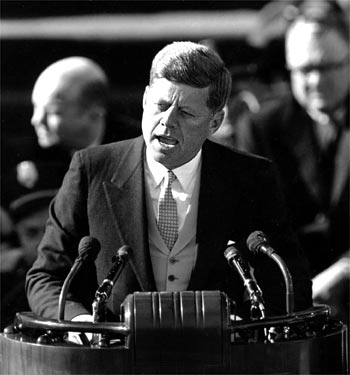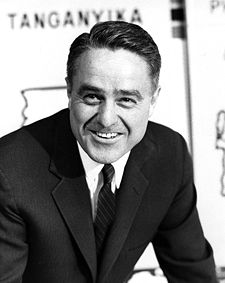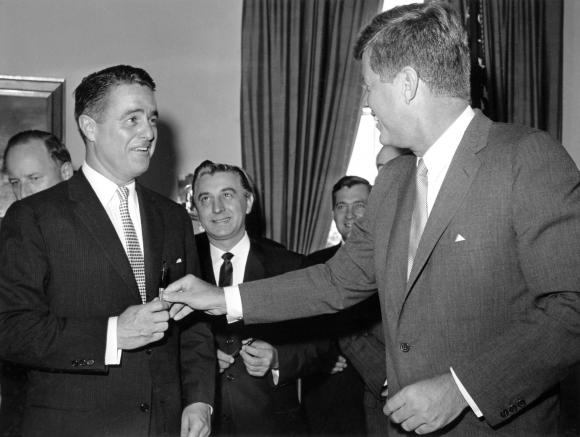Last Wednesday (Jan. 20) was the 50th anniversary of John F. Kennedy’s inauguration, when he sent forth that clarion call to all Americans: “Ask not what your country can do for you; ask what you can do for your country.”
At the moment he spoke, I was but 10 weeks old, so I do not claim to remember a thing. But I grew up with those words in my household; the call to service to the country resounded throughout my childhood and led me, two and a half decades later, to serve as a Peace Corps volunteer in Kenya.
Earlier this week, the man who founded that marvelous organization, R. Sargent Shriver Jr., died at the age of 95. I never met the man, but I knew of him – I think every Peace Corps volunteer hears his story, not only of his work in founding Peace Corps, but also of his tireless work on behalf of the poor, his founding of Head Start, his work with his wife, Ethel, to found and run the Special Olympics, and all the other marvelous things Mr. Shriver did in his life.
 I’ve been thinking of President Kennedy and Mr. Shriver a lot this week, and feel again that renewed call to serve the people of my country, to help make this nation a better place in which to live, to care for all of the people here.
I’ve been thinking of President Kennedy and Mr. Shriver a lot this week, and feel again that renewed call to serve the people of my country, to help make this nation a better place in which to live, to care for all of the people here.
Then I juxtapose that call with what took place in the House of Representatives Wednesday, the vote to repeal Health Care Reform, and I have to wonder: How does this serve our country?
Yes, the Republicans made a promise to their constituents that they would hold this vote. Yes, there are many who believe that Health Care Reform is wrong (and possibly evil, if you listen to some of the out-of-control rants on radio, TV and social networks).
But how does repealing that which will give Americans decent health care serve those same Americans? How does it answer President Kennedy’s call to serve each other?
I suppose, if you broke down President Kennedy’s challenge, you could make the argument that mandating health care for all is too much of the country doing for you, and not enough of you doing for the country.
I suppose it is possible to claim that government has no business in health care.
But if you were to make either of those arguments, you also would have to concede that Medicare, Medicaid and Social Security are wrong as well. And surely you would have to concede that government – which exists to provide for the security of its people – has no business providing that security. And if you concede those points, then wouldn’t you have to give up your Medicare, your Medicaid, your Social Security?
Now there is speculation that Senate Republicans will try to force a vote on repealing health care, not necessarily because they believe it is the right thing to do, but because they want to score political points. Republican Leader Mitch McConnell assures Americans that he will force such a vote, possibly employing delaying tactics on other bills, possibly by offering a motion to suspend the rules, which is an attempt to shut down the Senate.
What concerns me most is that the effort to repeal Health Care Reform is a repudiation of all that is

good in and about this country. Repealing it would say, in clear terms, “We don’t care about the least of our brothers and sisters. If you can’t make it on your own, go away.”
And in a week in which we mourn the loss of one great man, and celebrate anew the words of another, it seems petty and cruel to try to take away health care from those who really need it.
Somehow, I don’t believe either President Kennedy or Sargent Shriver would approve of that.
X X X
This column was written for the Episcopal Cafe (www. episcopalcafe.com) Daily Episcopalian.




